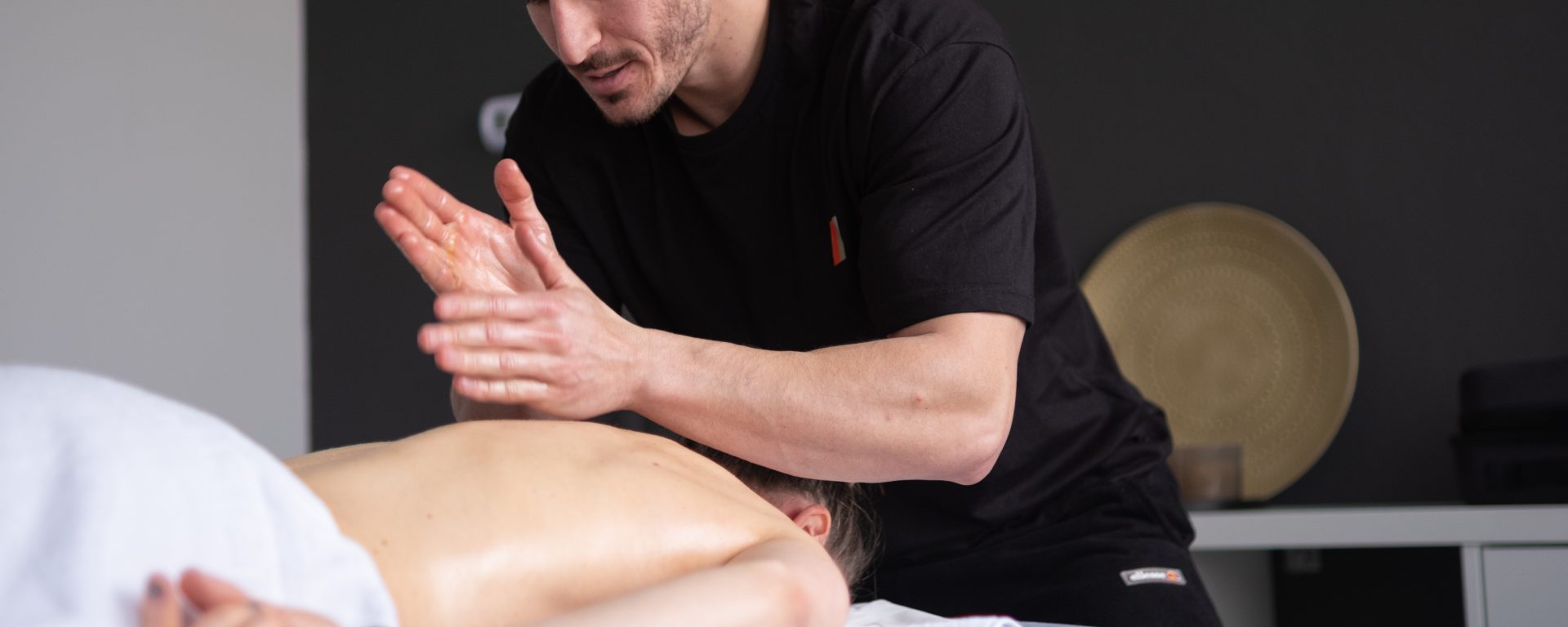In 1998, Flore, et. al., conducted study about Biokinergia (BK), a massage technique designed to enhance “biological” potential, has shown promise in modifying blood lactate concentration during prolonged exercise in a preliminary pilot study. This study aimed to validate the effects of BK on performance and physiological adaptations during maximal aerobic muscular exercise.
The primary objective was to confirm the influence of a BK session on cardiorespiratory and metabolic parameters in trained individuals during maximal progressive exercise on a cycle ergometer.
Two groups, each consisting of 10 subjects, underwent a maximal progressive exercise test before and 10 days after either a genuine BK session (B group) or a simulated one (C group), with participants blinded to the intervention. The study design aimed to assess the impact of BK on exercise performance and physiological responses.
No significant modifications were observed in the control (C) group. In contrast, the BK (B) group exhibited noteworthy changes post-session. Maximum oxygen consumption increased by 7%, and submaximal heart rate decreased by 4.7% in 65% of the participants. Additionally, 45% of subjects showed higher tidal volume and lower breathing frequency.
The subtle yet discernible modifications induced by BK suggest a potential influence on the sympathetic nervous system, although this hypothesis requires further confirmation. The study’s findings contribute to the evolving understanding of the physiological effects of BK on trained individuals, highlighting its potential to enhance certain aspects of cardiorespiratory and metabolic responses during maximal aerobic muscular exercise. Further research is warranted to elucidate the underlying mechanisms and implications of BK in optimizing athletic performance and overall physiological well-being.
Reference: Flore, P., Obert, P., Courteix, D., Lecoq, A. M., Girodon, J., Lidoreau, M., & Klein, P. (1998). Influence of a Biokinergia session on cardiorespiratory and metabolic adaptations of trained subjects. Journal of manipulative and physiological therapeutics, 21(9), 621-628.
